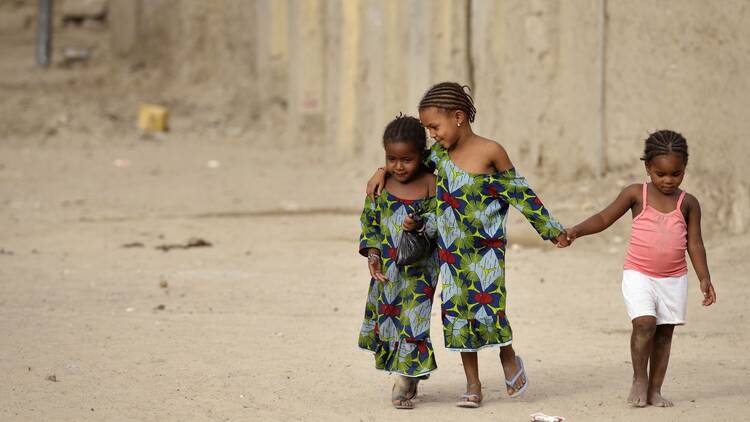Today is the global celebration of the United Nation's International Day of the Girl Child. Rev. Richard Ryscavage, S.J., director of Fairfield University’s Center for Faith and Public Life, applauded the U.N. initiative, which focuses on the pivotal need to educate girls as “a moral imperative that we must embrace, and be prepared to do the time-consuming and sensitive ground work where there is resistance to change.” Ryscavage shared some thoughts in a statement yesterday.
“It is imperative that we make a distinction between cultural differences and practices that call for our respect and acceptance, and violations of basic human rights that no appeal to cultural exception should be allowed to justify,” Ryscavage, a professor of sociology and international studies, said. “These may be sensitive distinctions, but we must not be afraid to draw them when they are warranted. Protecting the human dignity of girls and helping them reach their full human potential is one of those distinctions. Educated girls can become powerful economic engines within their communities and contribute much to the good of society. We must foster a climate in which girls are perceived as valuable in their own right, and deserving of respect, if we want to change the attitudes that perpetuate these injustices,” he said.
Ryscavage cited recent examples of grave inequities girls have suffered in some corners of the globe. Last month in Yemen, where marrying girl children is legal, it was reported that an 8-year-old girl died as a result of injuries she suffered during her wedding night. In 2012, in Pakistan, the Taliban shot Malala Yousafzai for seeking an education. She recovered, and in a powerful address before the U.N., she called upon the global community to support “the expansion of education opportunities for girls in the developing world.
“Opening the doors to education for girls is a moral imperative that we must embrace,” he said. “We must also be prepared to do the time-consuming and sensitive groundwork in those communities where there is resistance to change, so that these communities will be prepared to welcome what educated girls and women have to offer.”
Ryscavage said that a unique Fairfield University endeavor, “Impact India 2021,” supports the U.N. International Day of the Girl Child initiative by aiming to elevate the status of women and girls in India, and holds great promise for addressing the challenges related to women’s issues in Indian society.
Ryscavage, the former executive director of the United States Conference of Catholic Bishops’ Migration and Refugee Services Office, explained how Fairfield is trying to make a difference for women and girls:
“Under the direction of Dr. Gita Rajan, professor of English, the Center for Faith and Public Life is engaged in an ongoing body of research in collaboration with Jesuit universities in India in the hope of making an impact on the future of girls in that country,” he said. “The title of our project, ‘Impact India 2021,’ signals that we have a goal of helping to change attitudes about the value of girls that will be clearly discernible in the next Indian census of 2021.
“The Center for Faith and Public Life led a pilot study investigation partnering with Jesuit universities in Mumbai and Chennai to try to understand the social forces that are compelling families to choose to not have a girl child. In Phase II of the project, we, together with our 8 major academic partners in India, will examine 24,000 new families from around the country to validate what we have discovered to date,” Ryscavage said. “Our deeper qualitative understanding of the family dynamics surrounding the preference for the boy will then be used to help determine the communication strategy needed to effect change. This information is critical to designing successful initiatives in public policy as well as uniting widespread support of academia, popular culture, religious institutions and community-based organizations, all dedicated to real change.
“Many scholars feel that most of the violence against women in India stems from an undervaluing of women, which has contributed to the current sex ratio imbalance crisis whereby 880 girls are born each year for every 1,000 boys. Many families opt for having a boy rather than a girl because they see girls as lacking economic value to the family,” Ryscavage said. “As the government of India clearly understands, demographic imbalance of such magnitude will have serious long-term consequences for social stability, levels of violence, work force growth, and economic development.”








